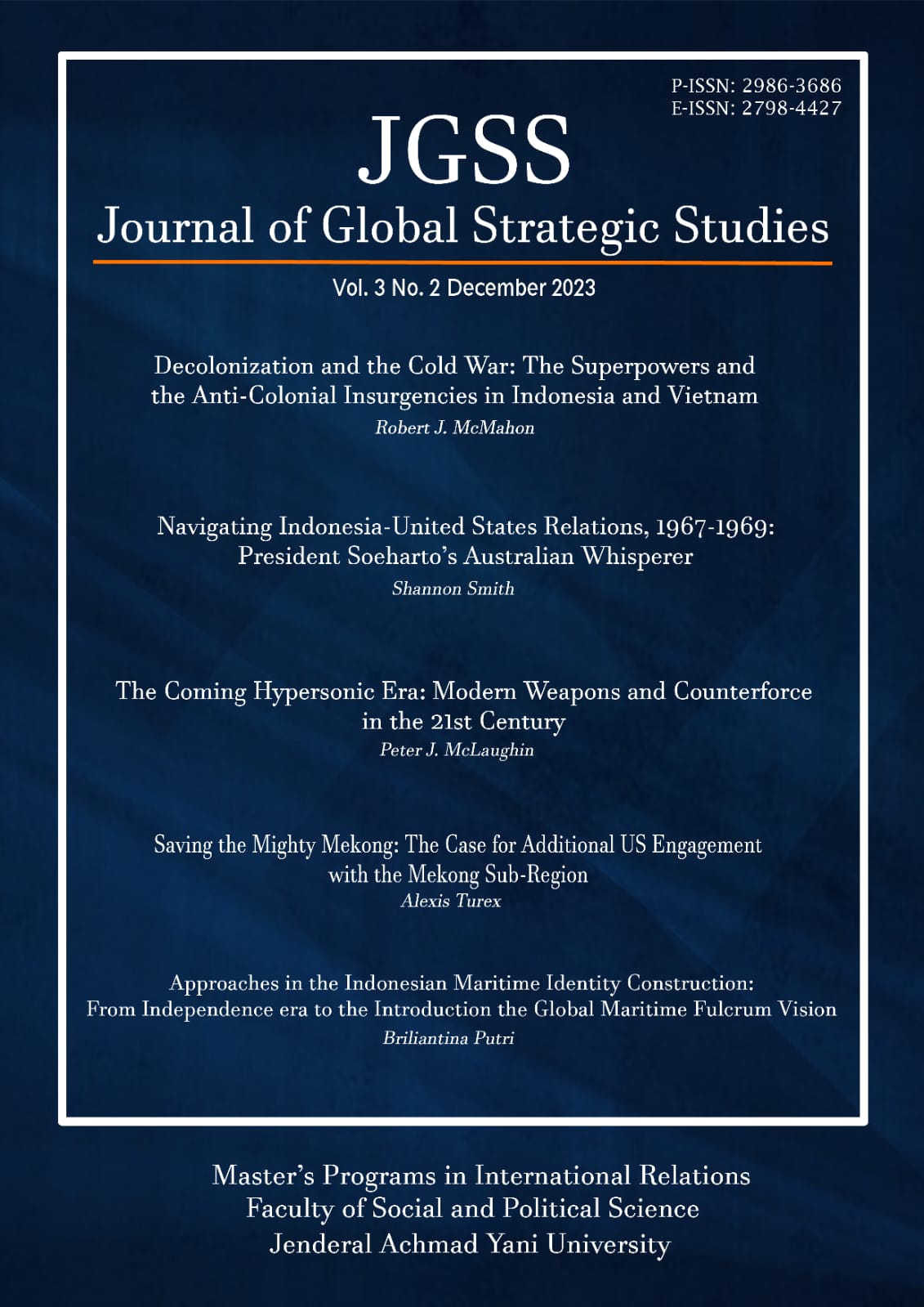Decolonization and the Cold War
The Superpowers and the Anti-Colonial Insurgencies in Indonesia and Vietnam
Abstract
Throughout the Cold War era, the United States and the Soviet Union frequently faced the dilemma of whether to recognize or to confer legitimacy upon armed insurgencies vying to overturn established civil authority. The superpower conflict, at once ideological and geopolitical, came to encompass the entire globe by the 1950s, with the Third World emerging as the chief zone of competition between the two superpowers--as well as the main source and site of non-state armed groups. The potential transformations of these armed groups into governments threatened to alter the prevailing balance of regional and global power. Policymakers in Washington and Moscow, consequently, needed to calculate carefully how the granting of de jure or de facto recognition to a particular armed insurgency, or the accordance of some form of legitimacy to it, might affect broader Cold War goals. Why did the United States and the Soviet Union, this essay asks, choose to recognize some insurgencies, deny recognition to others, and actively oppose still others? How, for their part, did these various armed, non-state actors seek to gain support, recognition, and legitimacy from one, or both, of the superpowers? What factors best explain their relative successes or failures in those endeavors? the present article explores those larger questions by focusing specifically on armed decolonization movements, arguably the most common and most consequential of the non-state, armed groups that emerged throughout the post-1945 period. In each of the cases examined here, the superpowers sought to shape the outcome of the decolonization struggle, offering, or withholding military support and diplomatic recognition as a weapon of influence. In each case, the aspiring national liberation movement deployed a combination of armed strength and diplomatic advocacy in a bid for legitimacy and recognition, seeing the support of one or both superpowers as instrumental to the overarching goal of full-fledged sovereignty and acceptance within the prevailing international state-based system.


This work is licensed under a Creative Commons Attribution-NonCommercial 4.0 International License.
Copyright Notice
The Authors submitting a manuscript do so on the understanding that if accepted for publication, copyright of the article shall be assigned to Journal of Global Strategic Studies, Department of Master of International Relations, Faculty of Social and Political Science, Universitas Jenderal Achmad Yani as publisher of the journal.
Copyright encompasses rights to reproduce and deliver the article in all form and media, including reprints, photographs, microfilms, and any other similar reproductions, as well as translations.
Journal of Global Strategic Studies, Department of Master of International Relations, Faculty of Social and Political Science, Universitas Jenderal Achmad Yani and the Editors make every effort to ensure that no wrong or misleading data, opinions or statements be published in the journal. In any way, the contents of the articles and advertisements published in Journal of Global Strategic Studies are the sole and exclusive responsibility of their respective authors















